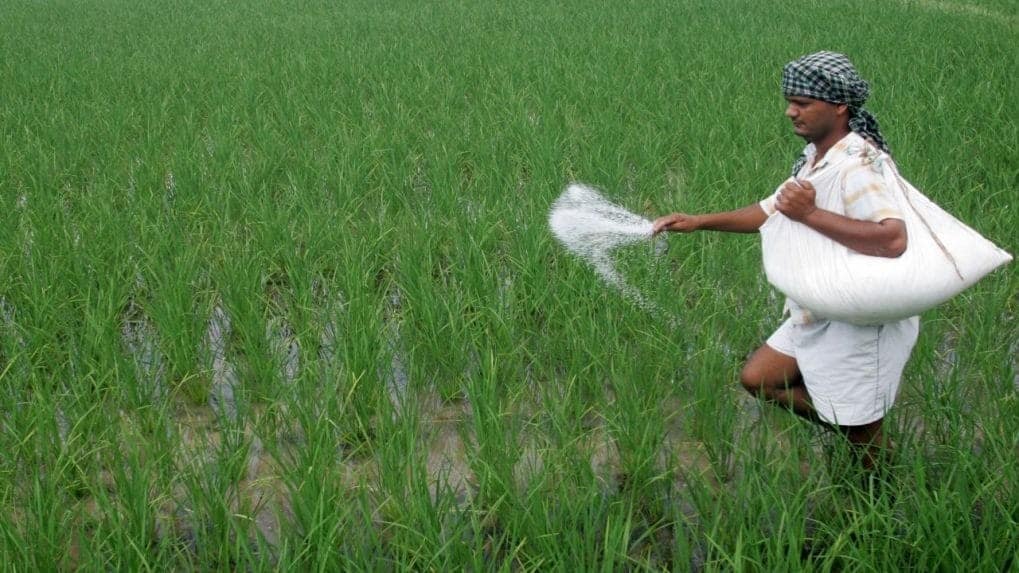Government Introduces Mechanism to Ensure Fertiliser Quality

The Ministry of Agriculture and Farmers Welfare is actively working to promote sustainable agricultural practices among farmers in India. Through various initiatives, including training programs and financial assistance schemes, the ministry aims to reduce the reliance on chemical pesticides and enhance the use of modern agricultural technologies. Recent statistics reveal significant efforts to ensure the quality of pesticides and fertilizers, while also addressing environmental concerns related to crop residue management.
Training Programs for Sustainable Practices
The Ministry of Agriculture and Farmers Welfare, through its Central Integrated Pest Management Centers (CIPMCs), Krishi Vigyan Kendras (KVKs), and State Agriculture Departments, conducts extensive training programs aimed at educating farmers about the responsible use of pesticides. These initiatives emphasize the importance of using chemical pesticides only as a last resort, thereby promoting safer agricultural practices. Currently, there are no subsidized pesticide purchase schemes available under the Department of Agriculture & Farmers Welfare (DA&FW). The ministry also enforces the Insecticides Act of 1968 and the Insecticide Rules of 1971 to ensure that farmers receive quality pesticides.
To maintain high standards, a total of 12,511 Insecticide Inspectors have been appointed across the country. These inspectors regularly collect samples from manufacturing units and sales points to check for quality and to combat the sale of counterfeit or substandard products. Between 2020 and 2024, over 356,000 pesticide samples were analyzed, revealing that 9,088 were substandard, prompting legal action against the offenders.
Financial Assistance for Agricultural Mechanization
The DA&FW has been implementing the ‘Sub-Mission on Agricultural Mechanization’ (SMAM) since 2014-15, which provides financial assistance for the purchase of agricultural machinery at subsidized rates. This initiative aims to promote farm mechanization and improve productivity. Notably, the scheme encourages women farmers by offering them financial support to establish Custom Hiring Centers (CHCs), which provide rental services for agricultural machinery.
In a bid to modernize farming practices, the government also facilitates access to drone technology. Financial assistance of up to 50% of the cost, with a maximum limit of Rs. 5.00 lakhs per drone, is available for agriculture graduates establishing CHCs. Additionally, small and marginal farmers, as well as women and Scheduled Caste/Scheduled Tribe farmers, can receive similar support for individual drone purchases. This initiative is part of a broader strategy to enhance agricultural efficiency and productivity.
Regulation of Fertilizer Quality
To ensure the quality of fertilizers, the Government of India enacted the Fertilizer Control Order (FCO) in 1985 under the Essential Commodities Act of 1955. This regulation outlines the specifications for various types of fertilizers, including chemical, bio-fertilizers, and organic options. The FCO prohibits the sale of fertilizers that do not meet prescribed standards, with violations leading to administrative and penal actions.
State governments are empowered to monitor fertilizer quality through inspectors who collect samples from manufacturing units and retail outlets. This regulatory framework aims to protect farmers from substandard products and ensure that they have access to high-quality fertilizers for their crops.
Addressing Climate Change and Crop Residue Management
The DA&FW is also focused on mitigating the impacts of climate change on agriculture through initiatives like the Per Drop More Crop (PDMC) and Rainfed Area Development (RAD) schemes. The PDMC program enhances water use efficiency at the farm level by promoting micro-irrigation techniques such as drip and sprinkler systems. Meanwhile, the RAD scheme encourages integrated farming systems to improve productivity and reduce risks associated with climate variability.
Additionally, the ministry has implemented the Crop Residue Management Scheme since 2018-19 to support states like Punjab, Haryana, Uttar Pradesh, Madhya Pradesh, and Delhi in managing crop stubble burning. This scheme provides subsidies for machinery needed to handle crop residues, thereby addressing environmental concerns and promoting sustainable agricultural practices.
Observer Voice is the one stop site for National, International news, Sports, Editor’s Choice, Art/culture contents, Quotes and much more. We also cover historical contents. Historical contents includes World History, Indian History, and what happened today. The website also covers Entertainment across the India and World.

